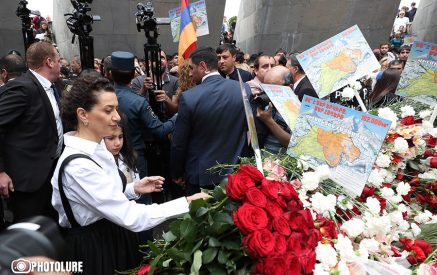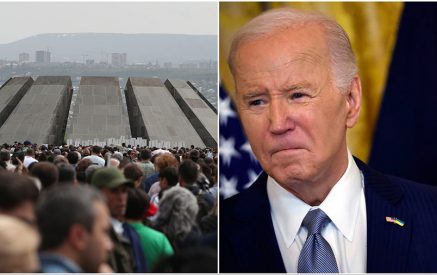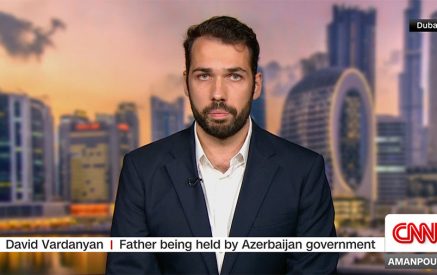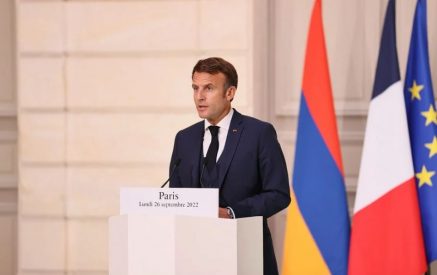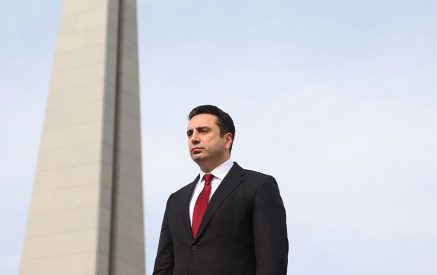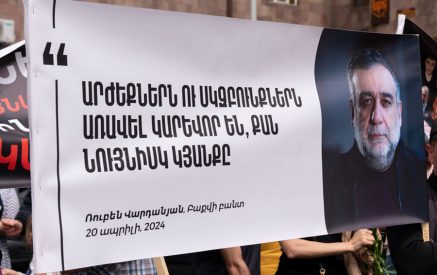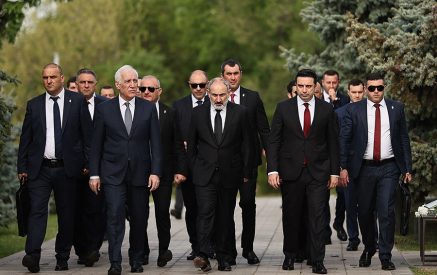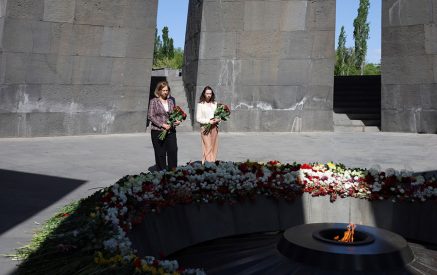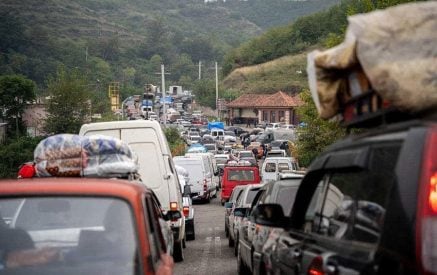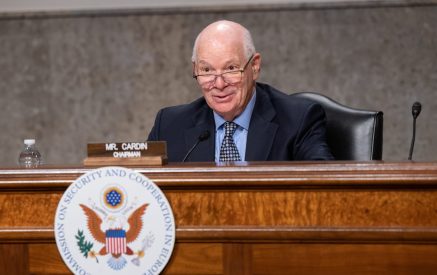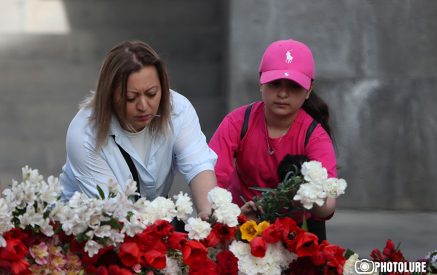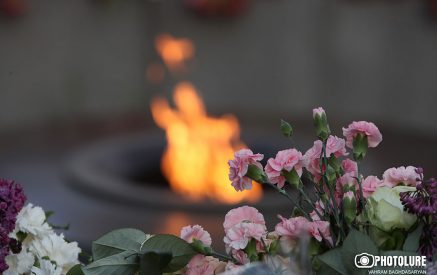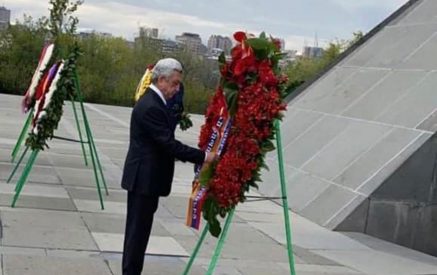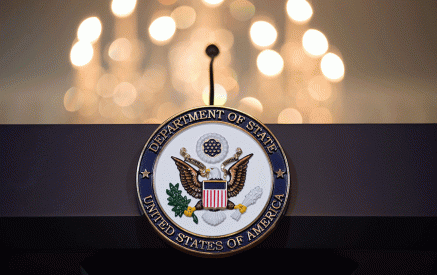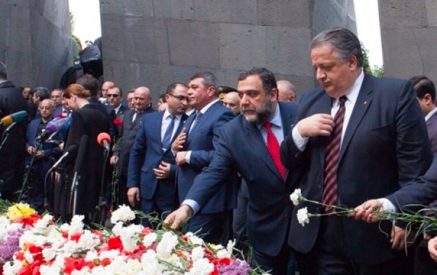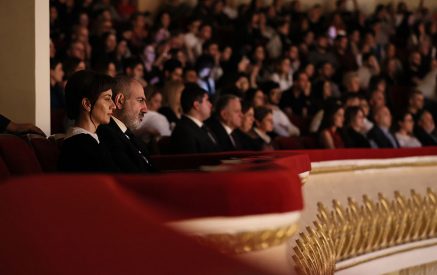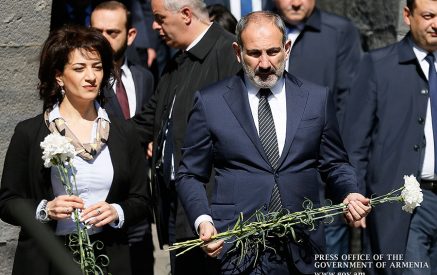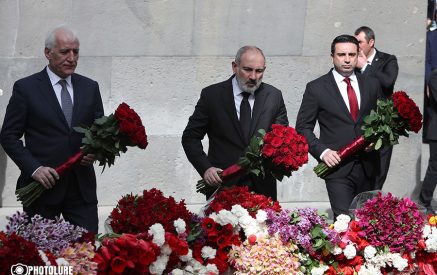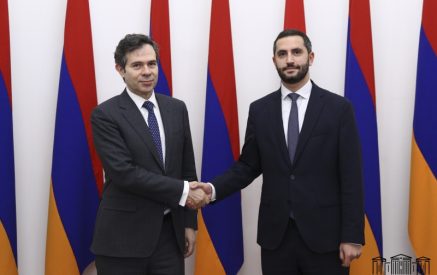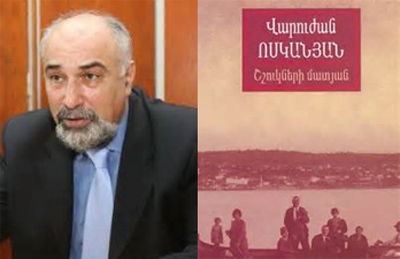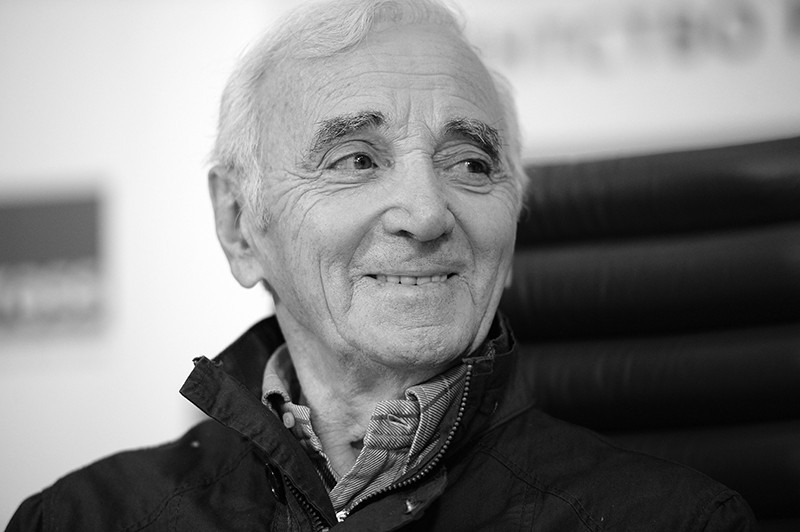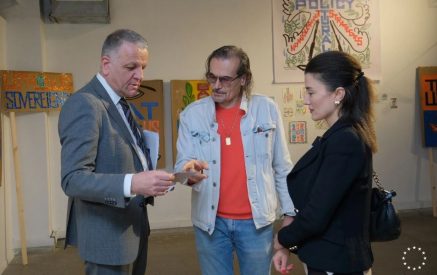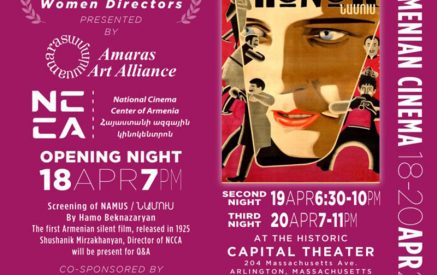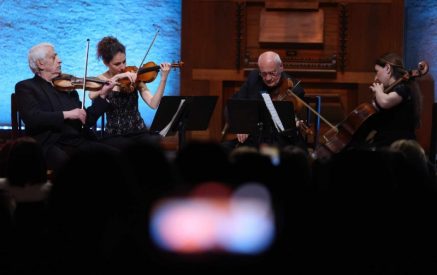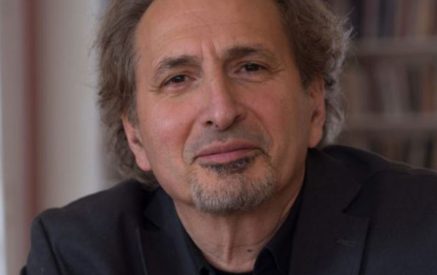“Aravot” met with Romanian writer, also politician, also Chairman of the Armenian Union in Romania, also Vice-President of the Writers’ Union of Romania, Varujan Vosganian (in the photo). The event was the writer’s book “The Book of Whispers” published by “Antares” Media Holding, which in the genre of fiction presents the sorrow and losses of the Armenian people associated with genocide. As characterized by the experts, it is a new interpretation of the genocide and its consequences. The writer is the author of various books, of which “The Book of Whispers” novel became more famous. The latter was published in Romania in 2009, translated into 7 languages and has become a bestseller in a number of countries. The book once was a great clamor in Turkey.
To the question of what the real reason for it is, Varujan Vosganian answered, “The Ambassador of Turkey had even sent a protest note to the Romanian government, saying that allegedly my book has offended the feelings of the Turkish people. As to what the offense was, I do not know. Because we are to be offended rather than them. On the contrary, my book does not encourage hatred against Turkish people, at all. My grandfather, Sedrak Melikyan, survived the genocide, because he got a help by a Turkish family. He was ill, this family found him, kept him in the stable in secret and my grandfather thus was rescued. Thus, to some extent, I owe to piety of some Turks. No need to mess up the things. Human relations are one thing, and the deeds of the authorities is a different thing.”
We reminded Mr. Voskanyan that once he had voiced three of his own positions on the issue of the genocide: a/ forget what happened, b/ forgive the Turks, c/ revenge, saying that if forgetting, then we would have committed self-murdering, taking a revenge will be continual, while for forgiving, one should be sure that what happened will nor reoccur. And to which of the tree options the author gives preference on the threshold of the 100th anniversary of the genocide, Mr. Vosganian said, “These are not options but the moves. Forgetting is excluded, the matter of forgiveness that is still wondering in my mind will become a reality only in one case when the second party (meaning the Turks) recognizes its guilt, like in the case with Germans and the Jews. And if forgiving, then our martyrs should forgive. For the final solution for the problem, in my opinion, a four dimension is required: international law, moral, economic and state. To be honest, I am sure that one day Turkey will recognize. There are many problems facing this country on this issue, and they, I am sure, are well aware of it. For instance, the churches and cemeteries must be returned to Armenians…”
To the inquiry of what steps the diaspora undertakes currently, particularly the diaspora in Romania, Mr. Vosganian said that the Diaspora has failed to create an Armenian ideology, the diaspora is just a community, and later he replied, “After the World War I, the Romanian-Armenian community was quite powerful not only by the influence, but also in numbers. Romania was the first state to open its ports for the genocide survivors, for Nansen members, and therefore, the community, which is the oldest community in Europe (Armenian moved to Romania around 1,000 years ago), became quite strong. I can tell that about half of the members of the first Government of Armenia were in Romania, and we could even open an Armenian government in abroad, from Katchaznouni up to Drastamat Kanay.
After the World War II, unfortunately, many Armenians who could not adapt the community-led life migrated to the West. So, now, the number of the community is small, a few thousand, but we are very influential. In fact, our voice is perceived as a powerful voice. With regard to the “powerful” voice, our interlocutor said the following, “After 1990, our community is rooted in the history of Romania. Therefore, we decided to take care of our needs in the political arena. For instance, we were able to fix a clause in the Constitution, according to which, the national minorities have the same rights to participate the election campaigns and have their candidates. The Armenian community has a Senator in the Parliament in 1990, and henceforth, continually, our representative is at the same time the leader of the parliamentary group for minorities. I presented the community for only 6 years, and the greatest strength is in our being united.”
Varujan Vosganian is convinced, “The Armenian community in Romania is currently in the best of the situation in the world. According to him, there is no other Armenian community in the world, which has so much appropriate rights as we have in Romania. For example, our priests are paid by the state, our expenses of our Sunday schools and the teachers’ salaries are also paid by the government, our expenses for the newspaper are also covered by the state. In short, there is a separate line in the budget of Romania, which provides funds for the Union of Armenians of Romania, for cultural and organizational matters.
On the other hand, Romania wants to develop good relations and cooperation in the Black Sea area. Therefore, the economic and political ties between Romania and Turkey are very powerful. Romania’s political class is also very careful in such sensitive matters. Although we are very respected and have many rights, but the Romanian political parties do not want to go forwards to the recognition. As a moral issue, recognition is acknowledged, but the Parliament has not yet made any official announcement about recognition of the genocide.”
Samvel DANIELYAN
































